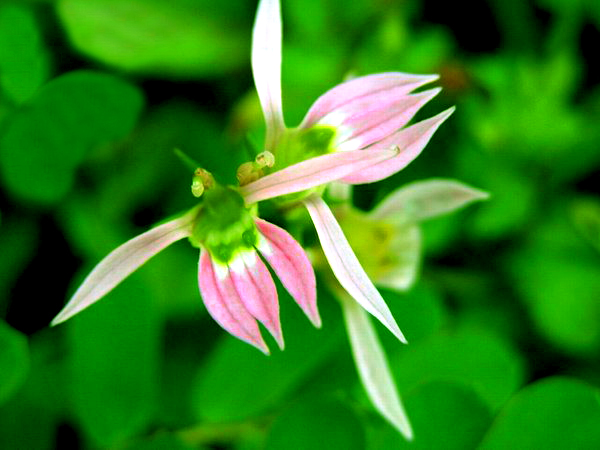Blood poisoning is a misnomer considering no poisonous substances infiltrate the blood but refers to the presence of bacteria in the blood. Medically, blood poisoning is known as sepsis. Blood poisoning is a potentially dangerous condition that could turn fatal. Blood poisoning symptoms may include one or two of the following symptoms:
Elevated respiratory rate
High body temperature
Abnormal white blood cells and
Elevated heart rate.

Lobelia
Sepsis or blood poisoning is also referred as bacteremia or septicemia. Blood poisoning causes could be traced to bacterial, viral or fungal infections which lead to inflammation and blood clotting in the body. The bacteria in the blood cause blood poisoning rashes as the bacteria breaks the walls of the blood vessels and blood leaks under the skin. The blood poisoning infection operates at three levels.
-- The uncomplicated blood poisoning is common and may not require hospitalization
-- Severe sepsis interferes with the body's response to infection and is typically characterized by heart, kidney, liver or lungs malfunction.
-- Septic shock is a life threatening stage when blood pressure levels drop dangerously causing low or no blood flow to vital organs. This results in organ failure and consequent death.
If diagnosed early, septicemia blood poisoning must be treated or such bacterial infections could progress from uncomplicated sepsis to a septic shock. Early treatment involves intravenous fluids and antibiotics and usually improves the chances of surviving the infection. Sepsis or blood poisoning is potentially dangerous particularly in infants, elderly, individuals with immunity disorders and individuals with invasive devices such as breathing tubes or urinary catheters. Home remedies for blood poisoning can help treat infections when the sepsis is in an uncomplicated stage. Home remedies must be attempted only in case of mild to moderate conditions. If symptoms do not appear to recede it is advisable to consult a medical practitioner at the earliest. Some popular home remedies are:
Poultice made of lobelia and slippery elm. Both the herbs must be taken in equal quantities and formed into a soft paste with water. Apply the paste to a fabric and tie the fabric around the wound or cut. Keep the fabric for more than a day and change it whenever required.
Vitamin C boosts the defense system. Citrus fruits and Vitamin C supplements are ideal nutritional choices. Intake of yoghurt before and after antibiotics helps and supports the intestines and eliminates the chances of intestinal disorders.
Herbal infusions made of horsetail; nettle, birch leaves and dandelion leaves (a teaspoon each) in boiling water can help removal of toxins and aid cleansing the body.
Decoction made from the Echinacea herb stimulates immunity. Use two teaspoons of powdered Echinacea in a single cup of boiling water, steep and drink the cooled infusion two to three times a day.

![Diseases, Symptoms, tcm, [tcmwindow.com]](/uploadFile/adImg/2015/11/11/f5cbfcc0-4df5-4646-9b9a-f316651a0199.jpg)





